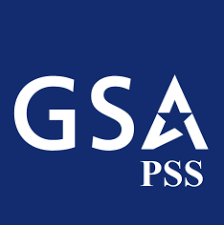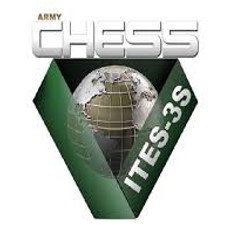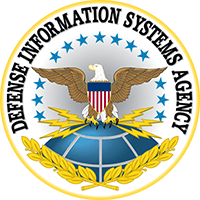As artificial intelligence transforms industries at unprecedented speed, organizations across every sector are embedding AI into their core operations. From predictive analytics and intelligent automation to generative content creation and real-time decision support, AI offers the potential to revolutionize how we work, compete, and create value. But this revolution brings a new imperative: ensuring that humans remain not only in the loop - but in control.
Critical thinking skills are more essential than ever in AI-enabled organizations. While AI excels at analyzing data, identifying patterns, and generating recommendations, it lacks human discernment, contextual awareness, and ethical judgment. Critical thinking bridges that gap. It enables professionals to question assumptions, interpret AI-generated insights responsibly, and make decisions that reflect organizational goals, societal values, and long-term consequences.
Interpreting AI Outputs with Informed Judgment
AI models don’t make decisions - they produce outputs: predictions, classifications, rankings, probabilities. These outputs must be interpreted carefully. Without critical thinking, organizations risk blindly accepting AI recommendations, leading to decisions that may be biased, irrelevant, or even harmful.
Consider a regional health system using AI to predict patient readmission risk. While the algorithm may flag a patient as “high risk,” critical thinking skills on the care team evaluate the prediction’s context: Was the data recent? Is there a social or environmental factor the model didn’t capture? By combining AI insights with human reasoning, clinicians ensure more personalized and accurate interventions.
Spotting Bias and Flawed Logic
AI is only as objective as the data and assumptions behind it. When training data contains historical biases - whether in hiring, lending, or law enforcement - those biases can be amplified by machine learning. Critical thinking skills play a key role in scrutinizing model design, identifying systemic bias, and questioning the fairness and completeness of training data.
For example, a European financial institution discovered that its AI-powered loan approval system was inadvertently penalizing applicants from certain zip codes. Critical thinking skills prompted analysts to investigate the model’s input variables and challenge implicit correlations. The result was a revised, more unbiassed model and an updated governance framework to prevent future bias.
Balancing AI Insights with Human Wisdom
AI can offer valuable insights, but it cannot understand nuance, context, or organizational dynamics. Critical thinking skills enable professionals to weigh AI-generated recommendations against experiential knowledge, stakeholder concerns, and broader strategic goals.
Take, for instance, a global logistics company considering AI-generated forecasts for inventory management. While the model may recommend cutting safety stock levels to reduce costs, operations managers - applying critical thinking - may recognize seasonal volatility or supplier risks that the model overlooks. This synthesis of algorithmic intelligence and human judgment yields smarter, more resilient decisions.
Enhancing Complex Problem Solving
As AI takes over repetitive and rules-based tasks, human talent is freed to focus on complex, ambiguous, and cross-functional problems. Critical thinking becomes the differentiator - helping teams define the right problem before rushing to a technical solution.
In a large insurance provider, an AI model flagged rising claim volumes in a particular region. Rather than rushing to automate claim processing, the business analysis team applied critical thinking skills to explore underlying drivers: changing weather patterns, new regulatory requirements, and customer demographics. Their analysis led to a broader transformation in policy design and customer engagement - far beyond what the AI had surfaced.
Enabling Ethical and Responsible AI Use
AI introduces profound ethical dilemmas - automated hiring decisions, algorithmic pricing, and surveillance technologies, to name a few. Critical thinking enables professionals to ask hard questions: Is this fair? Who might be excluded? What happens if the model is wrong?
Fostering Strategic Innovation
In the fast-evolving world of AI, success often comes from challenging conventional assumptions and exploring the unknown. Critical thinking skills excel at asking “what if” and “why not,” driving scenario planning, risk analysis, and innovation.
An aerospace firm experimenting with AI for predictive maintenance used critical thinking to question the assumptions baked into their performance thresholds. By shifting focus from scheduled replacement to condition-based indicators, they unlocked millions in cost savings while improving safety. It wasn’t the AI alone - it was the team’s willingness to question status quo processes that made the difference.
Building Organizational Resilience
Change is a constant in AI-enabled environments - but not all change leads to progress. Critical thinking skills equip individuals and teams to evaluate new technologies with healthy skepticism, focus on evidence-based benefits, and avoid being swept up in hype cycles.
For example, when a consumer goods company was pitched an AI tool promising “automated brand storytelling,” their marketing team paused to analyze its creative logic, narrative limitations, and audience relevance. Instead of jumping in, they conducted a controlled pilot and involved creatives in iterative testing. The result: better content, and smarter adoption.
Strengthening Collaboration and Culture
Critical thinking doesn’t happen in isolation - it thrives in diverse, cross-functional teams that challenge each other constructively. In AI initiatives, these skills are vital to navigating uncertainty, surfacing blind spots, and fostering inclusive solutions.
Organizations that encourage debate, peer review, and continuous learning create cultures where AI is evaluated rigorously and deployed responsibly. A critical thinking culture values clarity over consensus, asking better questions over rushing to answers, and learning over ego.
Conclusion: Human Intelligence at the Core of AI Strategy
AI is a powerful enabler - but it is not infallible, nor is it autonomous. In AI-enabled organizations, critical thinking skills are the human firewall against blind automation, biased decisions, and unintended consequences. They ensure that AI supports - not supplants - strategic clarity, ethical reasoning, and long-term vision.
Critical thinking empowers professionals to remain in charge of decision-making, evaluate technology with discernment, and guide innovation with purpose. In a world increasingly shaped by algorithms, critical thinking makes sure we stay accountable, adaptable, and aligned with what truly matters.
AI can compute. Critical thinking makes it count.
To build and enhance critical thinking skills for the AI era for you and your team, take a look at Inteq’s Critical Thinking training course.
* * * * *
Master of Chaos Newsletter (try it)
Subscribe to my blog | Visit our Knowledge Hub
Visit my YouTube Channel | Connect with me on LinkedIn
Check out our Business Analysis Training Courses & Consulting Services




















